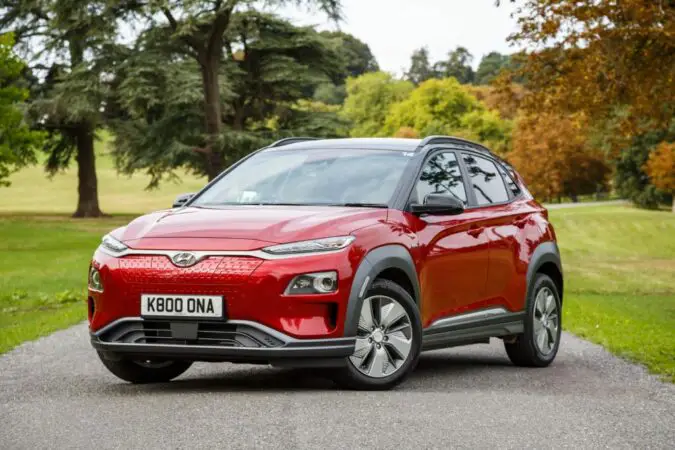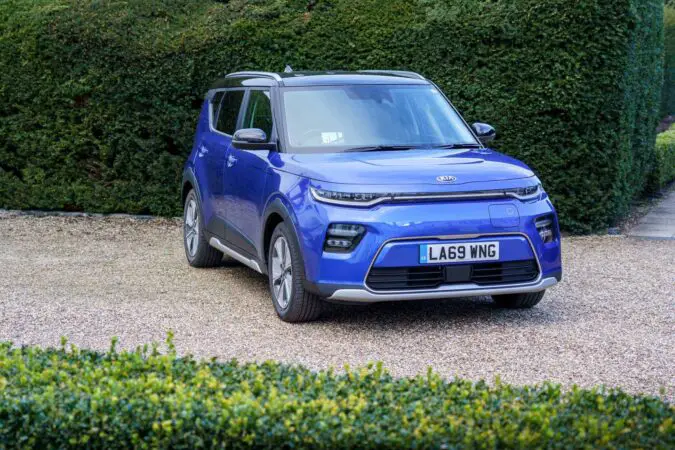How to Research and Compare Different Car Models
Researching and comparing different car models can be a daunting task. However, with the right approach, it can be an enjoyable and rewarding experience. Here are some tips to help you research and compare different car models:
1. Set your budget: Before you start researching cars, it is important to set a budget for yourself so that you know what type of car you can afford. This will help narrow down your search and make it easier to compare different models within your price range.
2. Research online: The internet is a great resource for researching cars. You can find reviews from experts as well as other drivers who have owned or driven the same model of car that you are interested in purchasing. This will give you an idea of how reliable the vehicle is as well as any potential problems that may arise with the ownership or operation of the vehicle.
3. Compare features: Once you have narrowed down your search to a few models, take time to compare their features side-by-side so that you can determine which one best meets your needs and preferences in terms of performance, safety, comfort, technology, etc. Make sure to read up on each model’s warranty coverage before making any final decisions so that if something does go wrong with the vehicle after purchase, it will be covered by the manufacturer’s warranty policy instead of coming out of pocket for repairs or replacements parts yourself later on down the line.
4 Test drive: Once you have done all your research online and compared features between different models, take time to test drive each one before making any final decisions about which one is right for you. This will give you an opportunity to get behind the wheel and experience first hand how each model handles on roads similar to those where they would normally be driven. It also gives an opportunity for further comparison between vehicles in terms of acceleration, braking, steering response, interior comfort, etc.
Following these steps should help make researching and comparing different car models much easier. With careful consideration given to both performance characteristics as well as cost factors, finding just the right vehicle should become much simpler.
What to Look for When Test Driving a New Car
When test-driving a new car, it is important to pay attention to several key factors. First, take note of the car’s acceleration and braking. Acceleration should be smooth and responsive, while braking should be firm and consistent. Additionally, pay attention to the steering wheel; it should feel comfortable in your hands and provide good feedback from the road.
Next, check for any rattles or squeaks that may indicate a problem with the suspension or other components of the vehicle. Also, listen for any strange noises coming from under the hood that could indicate an issue with one of its systems.
Finally, make sure all of the features work properly such as power windows, locks, audio system etc. as well as safety features like airbags and anti-lock brakes (ABS). If you have any questions about how these features work or if they are functioning correctly during your test drive do not hesitate to ask your salesperson for assistance.
By taking these steps when test-driving a new car you can ensure that you are making an informed decision before committing to purchase it.
Tips for Negotiating the Best Price on a New Car
1. Do your research: Before you start negotiating, it is important to do your research and know the market value of the car you are interested in. This will help you determine a fair price for the vehicle and give you an idea of what to expect when negotiating.
2. Know your budget: It is important to have a clear understanding of how much money you can afford to spend on a new car before entering into negotiations. Knowing your budget will help ensure that you don’t get carried away during negotiations and end up spending more than you can afford.
3. Be prepared to negotiate: When it comes time to negotiate, be prepared with facts about the car’s features, its market value, and any other information that may be useful in getting the best deal possible. Don’t be afraid to ask questions or make counteroffers if necessary; this shows that you are serious about getting a good deal on the car.
4. Don’t rush into anything: Take your time when negotiating for a new car; rushing into things could lead to making decisions that aren’t in your best interest financially or otherwise. Make sure all of your questions have been answered before signing any paperwork or agreeing on any terms so there are no surprises down the line!
5. Consider financing options: Many dealerships offer financing options that can help make purchasing a new car more affordable by spreading out payments over time instead of paying for it all upfront at once; however, make sure that these financing options fit within your budget before committing!
How to Finance Your New Vehicle Purchase
Purchasing a new vehicle can be an exciting experience, but it is important to consider the financial implications of such a purchase. There are several options available for financing your new vehicle purchase, and understanding these options can help you make the best decision for your individual needs.
One option is to pay cash for the vehicle. This eliminates any interest payments and allows you to own the car outright from day one. However, this may not be feasible for many people due to budget constraints or lack of savings.
Another option is to take out an auto loan from a bank or other lender. This will allow you to spread out payments over time while also accruing interest on the loan amount. It is important to shop around and compare rates before committing to any particular lender in order to get the best deal possible.
You may also be able to finance your new vehicle through a dealership or manufacturer’s financing program. These programs often offer lower interest rates than traditional lenders, as well as additional incentives such as extended warranties or service packages that can help reduce overall costs associated with owning a car over time.
Finally, if you have good credit and sufficient income, leasing may be another viable option for financing your new vehicle purchase. Leasing allows you access to more expensive vehicles than what would otherwise be affordable through traditional loans while also providing flexibility in terms of the length of the lease agreement and monthly payment amounts depending on how much use you expect from the car during that period of time.
No matter which route you choose when it comes time to finance your new vehicle purchase, it is important that you understand all aspects of each option before making any commitments so that you can make an informed decision about what works best for your individual situation .
Understanding the Pros and Cons of Leasing vs Buying a Car
Leasing vs buying a car is an important decision that requires careful consideration. Both options have their own advantages and disadvantages, so it is important to understand the pros and cons of each before making a decision.
The primary advantage of leasing a car is that it typically requires lower upfront costs than buying one outright. This makes it easier for those with limited funds to get into a new vehicle without having to pay the full price up front. Additionally, monthly payments are usually lower when leasing compared to financing a purchase, which can make it more affordable for some people. Leasing also allows you to drive newer cars more often since you will be able to upgrade your vehicle every few years when your lease ends.
On the other hand, there are some drawbacks associated with leasing as well. For example, most leases come with mileage limits which can be restrictive if you plan on driving long distances or frequently taking road trips in your car. Additionally, leased vehicles must be returned in good condition at the end of the lease period or else you may incur additional fees for any damage or excessive wear and tear on the vehicle. Finally, once your lease ends you will not have any equity in the car since all payments made during the term were essentially just renting out use of the vehicle rather than building ownership over time like when financing a purchase would do.
Buying a car has its own set of advantages and disadvantages as well. The primary benefit is that once all payments are made on your loan then you will own your vehicle outright and no longer have any monthly payments due on it (unless you choose an extended warranty). This gives buyers more freedom over how they use their cars since there are no mileage restrictions or return conditions as there would be with leasing one instead. Additionally, buyers can build equity in their vehicles over time by paying down their loan balance faster than required which could potentially save them money in interest charges if they decide to sell or trade in later down the line as well as provide them with some financial security should they ever need access to quick cash from selling off assets such as their car(s).
However, buying does come with its own drawbacks too such as higher upfront costs due to having to pay taxes and registration fees along with whatever amount is needed for a down payment (if applicable) before being able to take possession of your new ride; plus higher monthly payments compared to what one might expect from leasing depending on how much was borrowed initially versus what was put down up front towards purchase price/loan balance etc. Also, keep in mind that if something ever happened where repairs become necessary then those expenses would fall solely onto buyer’s shoulders whereas leased vehicles typically include maintenance coverage within terms of the agreement so long as everything remains within acceptable limits according to usage guidelines set forth by lessor/leasing company etc..
In conclusion, both options offer unique benefits but also come along with certain drawbacks too so understanding the pros & cons associated with each prior to making the final decision the best way ensures getting the most value out of whichever route is chosen and ultimately go down the road!
What You Need to Know About Extended Warranties on Cars
When purchasing a car, many people consider the option of an extended warranty. An extended warranty is a service contract that covers repairs and maintenance for a certain period of time after the original manufacturer’s warranty has expired. While an extended warranty can provide peace of mind and financial protection in the event of costly repairs, it is important to understand what these warranties cover and how they work before making a decision.
First, it is important to understand that not all extended warranties are created equal. Some may only cover specific parts or components while others may offer more comprehensive coverage. It is also important to note that some warranties may have exclusions or limitations on certain types of repairs or services, so be sure to read the fine print carefully before signing any agreement. Additionally, some dealerships may offer their own extended warranties which can be more expensive than those offered by third-party providers.
It is also important to consider the cost versus benefit when deciding whether or not an extended warranty makes sense for your situation. Generally speaking, if you plan on keeping your car for several years after its original manufacturer’s warranty expires then an extended warranty could be worth considering as it could save you money in the long run if major repairs are needed down the road. However, if you plan on trading in your car within a few years then an extended warranty might not make sense financially as you likely won’t get enough use out of it before needing to replace your vehicle again anyway.
Finally, keep in mind that there are other options available such as roadside assistance plans which can provide additional protection without having to purchase an expensive service contract like those offered with most extended warranties. Ultimately, whether or not purchasing an extended warranty makes sense will depend on individual circumstances so do your research and weigh all options carefully before making any decisions about coverage for your vehicle
The Benefits of Buying Certified Pre-Owned Vehicles
Buying a certified pre-owned vehicle can be a great way to get the car of your dreams without breaking the bank. Certified pre-owned vehicles are typically late-model cars that have been inspected and reconditioned by the manufacturer or dealership, and come with an extended warranty. Here are some of the benefits of buying certified pre-owned vehicles:
1. Quality Assurance: When you buy a certified pre-owned vehicle, you can rest assured that it has been thoroughly inspected and reconditioned to meet strict standards set by the manufacturer or dealership. This means that any potential problems have already been addressed, so you don’t have to worry about unexpected repairs down the line.
2. Extended Warranty: Most certified pre-owned vehicles come with an extended warranty from either the manufacturer or dealership, which can provide peace of mind in case something goes wrong with your car after purchase.
3. Lower Price Tag: Certified pre-owned vehicles tend to cost less than their brand-new counterparts due to their age and mileage, making them more affordable for those on a budget who still want quality assurance when buying a car.
4. Better Financing Options: Many dealerships offer special financing options for certified pre-owned vehicles, which can make it easier for buyers to secure financing at competitive rates compared to what they would get if they were buying a brand new car outright.
Overall, buying a certified pre-owned vehicle is an excellent option for those looking for quality assurance without having to pay top dollar for it. With its lower price tag and extended warranty coverage, as well as better financing options available through many dealerships, there are plenty of reasons why purchasing one could be beneficial in both short-term and long-term scenarios alike!
Strategies for Getting the Most Value Out of Your Trade-In
When it comes to trading in your vehicle, there are several strategies you can use to get the most value out of your trade-in. Here are some tips to help you maximize the value of your trade-in:
1. Research Your Vehicle’s Value: Before trading in your vehicle, research its current market value. This will give you an idea of what dealerships may be willing to offer for it. You can use online resources such as Kelley Blue Book or Edmunds to get an estimate of its worth.
2. Clean and Repair Your Vehicle: Make sure that your vehicle is clean and in good condition before taking it into a dealership for a trade-in appraisal. If there are any minor repairs that need attention, take care of them beforehand so that they don’t affect the appraisal price offered by the dealership.
3. Negotiate with Multiple Dealerships: Don’t just settle for one offer from one dealership; shop around and compare offers from multiple dealerships before making a decision on which one to go with for your trade-in deal.
4. Consider Selling Privately: If you have time on your hands, consider selling privately instead of trading in at a dealership; this could potentially net you more money than what dealerships would offer for a trade-in deal due to their overhead costs associated with reselling vehicles after purchase from customers like yourself who are looking to upgrade their ride or switch brands altogether..
5 . Take Advantage Of Trade-In Specials And Promotions: Many car manufacturers and dealerships run special promotions throughout the year offering additional incentives when trading in vehicles such as cash back offers or discounts on new purchases. Be sure to keep an eye out for these deals so that you can take advantage when they come up .
Following these tips will help ensure that you get the most value out of your trade-in when upgrading or switching vehicles.
Q&A
1. What should I consider when buying a new car?
When buying a new car, you should consider your budget, the type of vehicle that best suits your needs, the features and options available on different models, fuel efficiency ratings, safety ratings, and any warranties or other benefits offered by the manufacturer. You should also research reviews from other drivers to get an idea of how reliable and enjoyable the car is to drive.



